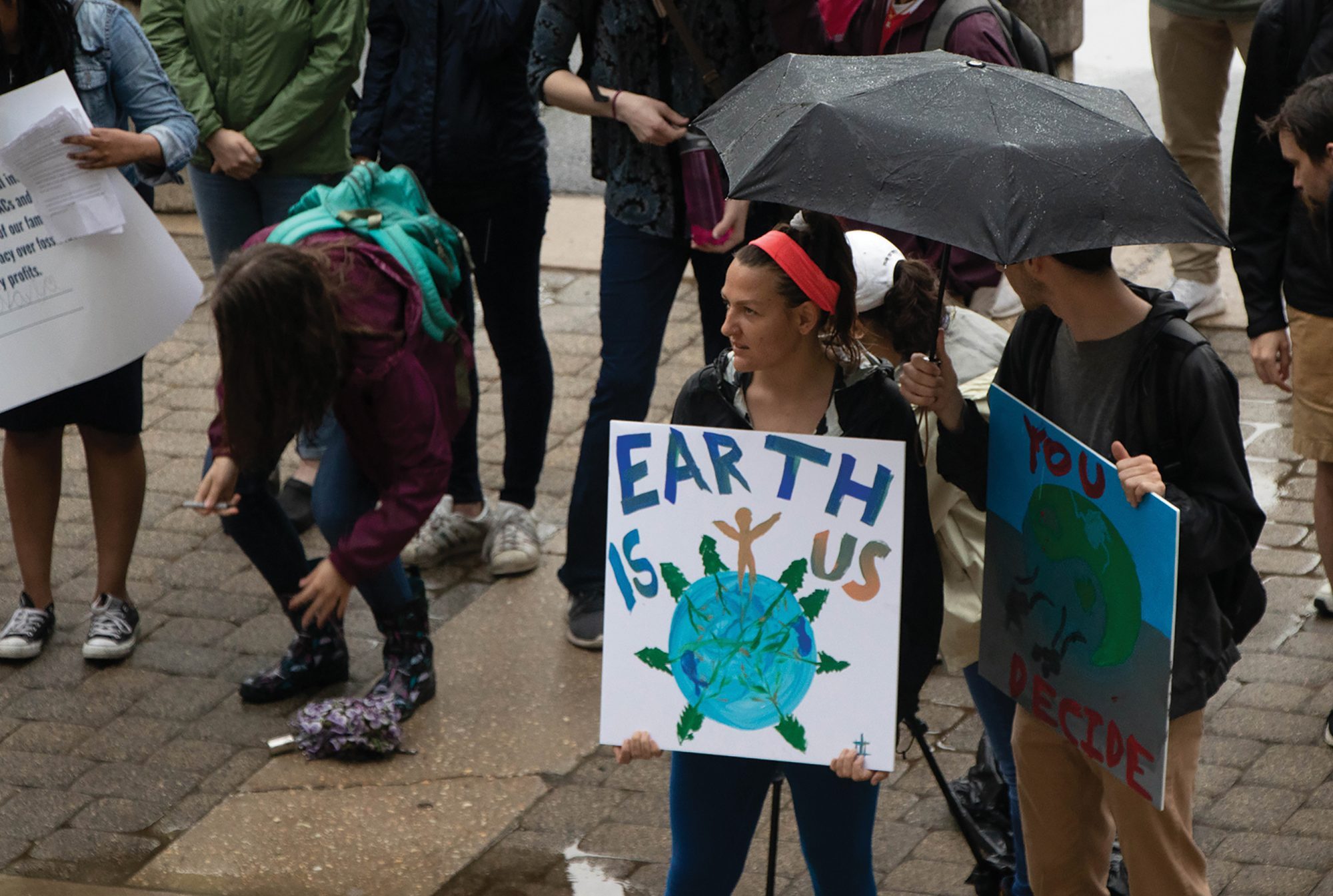Views expressed in opinion columns are the author’s own.
Friday’s Global Climate Strike protests included everything good protests should have: a worthy cause, high protester turnout and catchy chants. The only thing it didn’t have? A real, tangible pathway to change for the climate crisis.
There’s no question that the protest was inspiring. It certainly drew attention to the urgency of taking climate-focused action across worldwide. But after the Instagram stories ended and the protestors went home, little substantial action occurred. With time running out to prevent irreversible climate damage, the time for protests is over. What we need — right now — is a climate boycott.
A local climate boycott would enact change through collective consumer action by prioritizing business practices that decrease the harms from the climate crisis. It would force every University of Maryland student to put their money where their mouth is and make them grapple with some of the less sustainable behaviors their favorite local shops use. Students have the most impact on businesses that depend on them as customers, and they should use their influence to create change.
Boycotts work — just look at the significant social and political movements of the 20th century. The Montgomery Bus Boycotts were was a defining moment for the Civil Rights movement. The Anti-Apartheid Movement hastened the end of apartheid in South Africa.
But let’s look local, and see how a climate boycott could impact College Park. Take R.J. Bentley’s: On any given night, you’ll find students knocking back vodka sours and tequila sunrises from plastic cups paired with plastic straws. You’ll find a similar scene at Cornerstone Grill and Loft and some other local bars. Despite cries to save turtles from the perils of plastic straws, students contribute to the businesses’ consumption of more and more plastic on a weekly basis.
It’s very easy for these bars to make the switch from plastic straws to paper straws — or even no straws at all. You could also swap the current plastic cups for compostable versions. This website even quantifies the miles of emissions and days of energy saved by purchasing compostable cups. Cafes and shops that serve Starbucks on this campus already use paper straws, giving students a greener alternative and providing the campus with a successful example of more sustainable methods.
This is where the boycott comes into play. Students are the lifelines of local enterprises, and College Park’s watering holes are no different. Following prior examples of triumphant boycotts, students need to organize and use collective action to their advantage. If enough students put the same effort they put into impromptu protests into depriving bars of their business until they stop using single use plastics, the change could be immediate.
It’s easy to be cynical and doubt the impact students can have on the businesses around them, especially popular bar establishments. However, if students are truly passionate about sustainability, they should feel equally passionate about stopping local businesses’ environmentally-damaging behavior no matter how well-liked.
But consumer activism really can change business decisions. According to the Yale Program on Climate Change Communication, “boycotts that receive at least some national media attention have about a one-in-four success rate in influencing corporate practice.” College Park favorites like the aforementioned bars aren’t corporate machines — they’re local businesses that respond to local pressure. A combination of a student boycott and local media attention might just place enough heat on them to change and could even inspire student-supported corporate chains to rethink their sustainability efforts.
If money makes the world go round, then students are the driving force behind College Park businesses. They should use their power of the purse for good and join collectively to end local business practices that do more harm than good for the environment.
Maya Rosenberg is a sophomore journalism and public policy major. She can be reached at maya.b.rosenberg@gmail.com.



